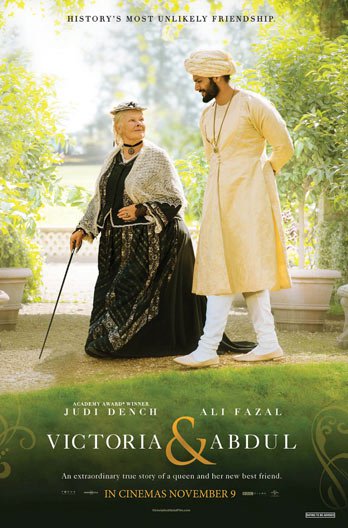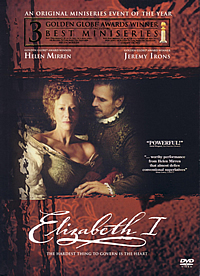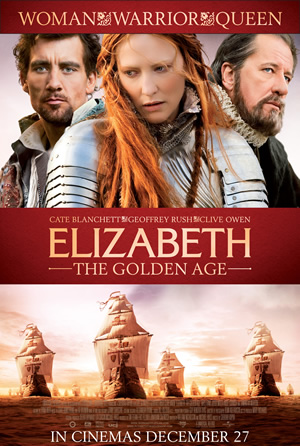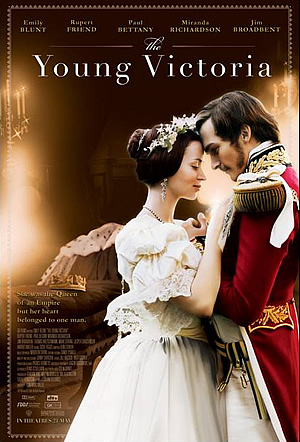VICTORIA & ABDUL (2017)
Genre: Drama
Director: Stephen Frears
Cast: Judi Dench, Adeel Akhtar, Simon Callow, Michael Gambon, Eddie Izzard, Ruth McCabe, Tim Pigott-Smith, Julian Wadham, Olivia Williams, Fenella Woolgar
Runtime: 1 hr 52 mins
Rating: PG (Some Coarse Language)
Released By: UIP
Official Website:
Opening Day: 9 November 2017
Synopsis: The extraordinary true story of an unexpected friendship in the later years of Queen Victoria’s (Academy Award winner Judi Dench) remarkable rule. When Abdul Karim (Ali Fazal), a young clerk, travels from India to participate in the Queen’s Golden Jubilee, he is surprised to find favor with the Queen herself. As the Queen questions the constrictions of her long-held position, the two forge an unlikely and devoted alliance with a loyalty to one another that her household and inner circle all attempt to destroy. As the friendship deepens, the Queen begins to see a changing world through new eyes and joyfully reclaims her humanity.
Movie Review:
Twenty years after Judi Dench vaulted into cinema royalty with her portrayal of Queen Victoria in ‘Mrs Brown’, the most regal actress of our time revisits one of her most celebrated roles in a drama about the lonely monarch’s friendship with an Indian clerk named Abdul Karim, a relationship which the Victorian court was eager to bury owing to its almost scandalous nature. Even in today’s era of political correctness, it’s not difficult to see why – not only was Abdul a commoner, he was a brown-skinned Muslim who was elevated to a position of trust and power which had frustratingly eluded the sycophants in her royal household. Only because this episode was recorded in Abdul’s private diaries was it eventually brought to light by journalist Shrabani Basu in her book of the same name, which forms the basis of this Stephen Frears movie.
That said, a disclaimer at the start which reads “Based on real events… mostly” warns that some creative liberty has been taken with this adaptation. Indeed, rather than a straightforward retelling of their controversial relationship, Frears and his screenwriter Lee Hall have opted for a somewhat light-hearted retelling of Abdul’s initiation into the royal household, poking gentle fun at the reaction of the aristocratic bluenoses to his engagement as her footman and then as her munshi (or teacher). You can tell that Frears is aiming for humour right from the start when Abdul’s supervisor explains to him that he has been selected to present a ceremonial gold coin to His Majesty by the very and only virtue of his height, which also places him in stark contrast to his grumpy companion Mohammed (Adeel Akhtar), a much shorter fellow who was chosen against his own will to replace the other tall fellow whom had fallen off an elephant.
In the same way, Frears mines the elaborate etiquette and pantomime of the state dinner where Abdul is slated to present the coin for laughs – not only are the rest of the guests compelled to eat as fast as the Queen (the servants clear the plates for the next course as soon as she is done with hers), she ends up utterly bored with the occasion and falling asleep just before dessert is served. Abdul enters into her life of routine and monotony like a breath of fresh air, and after making eye contact despite being explicitly told not to do so as well as kissing her foot out of the blue at a public event, Victoria invites Abdul into her service. Soon, Victoria and Abdul are sharing intimate conversation over the Taj Mahal and mango chutney, she is learning Urdu from him, and she makes plans for Abdul to bring his own family to England to stay on the royal grounds with him.
It all is a little disconcerting for the rest of the royal consort to say the least, and led by the Queen’s own priggish son Bertie (Eddie Izzard), they make ever louder protests to the Queen, even threatening to quit en masse and declare her insane if she does not abandon her plans to confer knighthood on Abdul. There is no way to sugar-coat their outright bigotry, which is also the reason why the film takes on an abrupt change in tone during its last third as it deals with tensions within the Queen’s own household as well as with the Prime Minister (Michael Gambon) over her unlikely treatment of Abdul. The shift from comedy to drama is also calculated to whip up poignancy by the time the Queen succumbs to age and eventually passes on, leaving Abdul and his family at the mercy of the newly crowned King Edward VII, who proceeds to order the destruction of any and every trace of evidence of his mother’s relationship with Abdul. At least in that regard, Frears stays accurate to history, although that is unlikely to pacify criticisms that his film whitewashes the racism of the British Raj under a effusive sentiment of nostalgia for the former empire.
Still, if one weren’t to nitpick over accuracy and authenticity, then ‘Victoria and Abdul’ should make for perfectly genteel entertainment. Though the elements are all there for an incisive exploration of racial, culture and class tensions, Frears has dulled these in favour of a glossy prestige picture which is hardly concerned that it slowly but surely reduces Abdul to a spectator in his own movie. Even so, Dench is magisterial in the role of Victoria, the grand old dame at the age of 82 utterly nuanced and complex in her portrayal of the latter’s humanity in her loneliness, steeliness and emotional frailties. It is Dench’s show through and through, and the fundamental reason to watch this otherwise flawed, deliberately crowd-pleasing, exercise in casually revisionist history.
Movie Rating:




(Judi Dench as Queen Victoria is better than the film itself, which is at best genteel crowd-pleasing entertainment that aims to preserve arthouse prestige while appealing to a mainstream audience)
Review by Gabriel Chong
You might also like:





